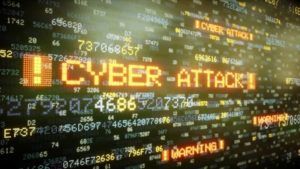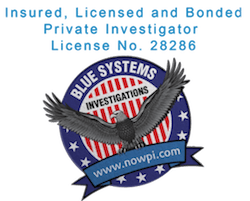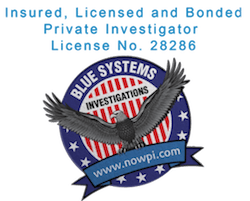By George Mercurius
•
March 26, 2025
In the shadowy realm where wealth meets deception, professional asset search investigations illuminate what many prefer to keep hidden. When individuals conceal property, accounts, investments, or other valuables during divorce proceedings, business disputes, or debt collection matters, these sophisticated investigations become essential tools for uncovering financial truth. The art and science of asset location combines traditional investigative techniques with cutting-edge digital forensics to reveal what lies beneath carefully constructed financial facades. Beyond the Surface: Understanding Asset Search Investigations Asset search investigations delve beneath surface-level financial presentations to uncover the complete picture of an individual's or business's holdings. These comprehensive examinations go far beyond basic database searches, employing sophisticated methodologies to identify hidden wealth across multiple jurisdictions and asset classes. Professional investigators approach asset searches with methodical precision, examining both obvious repositories and the obscure financial corners where significant wealth often hides. Through this systematic process, they transform financial mysteries into documented realities that support legal proceedings, business decisions, and personal resolutions. When Asset Searches Become Necessary Several situations typically trigger the need for professional asset search investigations: Divorce and Family Law Proceedings During marital dissolution, spouses sometimes attempt to hide assets to prevent fair distribution. Professional asset searches identify: Undisclosed bank accounts and investments Properties held under alternative names or entities Business interests concealed through complex structures Transfers to friends or family members before filing Offshore holdings designed to evade discovery These investigations ensure equitable settlements based on complete financial transparency rather than selective disclosure. Business Litigation and Partnership Disputes When business relationships deteriorate, asset searches become crucial for: Identifying company assets diverted to personal use Uncovering competing businesses established secretly Documenting improper transfers before litigation Locating assets that could satisfy potential judgments Verifying financial representations made during disputes This financial clarity often proves decisive in resolving complex business conflicts. Judgment Recovery Efforts After winning legal judgments, creditors frequently discover that collecting proves challenging. Asset searches support recovery by: Locating bank accounts subject to garnishment Identifying real property eligible for liens Documenting vehicles and other tangible assets Uncovering business interests that generate income Finding investments that could satisfy obligations These investigations transform paper victories into actual financial recovery. Due Diligence Investigations Before significant business transactions or investments, asset searches verify financial representations through: Comprehensive wealth verification Identification of undisclosed liabilities Validation of claimed business interests Background on financial history and practices Documentation of asset ownership structures This verification prevents costly misrepresentations from undermining important decisions. The Asset Search Methodology Professional asset investigations follow systematic methodologies that maximize discovery while maintaining legal compliance. These approaches typically involve multiple phases and techniques: Public Records Research The foundation begins with comprehensive public records examination including: Real property ownership records across multiple jurisdictions Recorded liens, judgments, and encumbrances Corporate and business entity filings UCC (Uniform Commercial Code) filings showing secured interests Tax assessment records indicating property holdings Professional license registrations suggesting income sources Court records revealing financial declarations and histories This public information establishes the baseline financial picture before deeper investigation. Financial Institution Research Through proper legal channels, investigators may identify: Banking relationships and account locations Investment accounts and brokerage relationships Retirement accounts and pension interests Safe deposit box locations Lending relationships indicating asset collateral Credit profiles suggesting financial capacity These financial relationships often provide crucial insights into asset holdings. Business Interest Analysis For subjects with entrepreneurial involvement, investigators examine: Corporate ownership records and shareholder information Partnership agreements and entity structures Intellectual property registrations Franchise relationships and licensing agreements Government contract databases Industry-specific registrations and memberships These business connections frequently reveal significant hidden value. Digital Financial Footprints Modern asset searches incorporate sophisticated digital investigation including: Social media analysis revealing lifestyle inconsistencies Online marketplace activities suggesting collections or valuables Electronic records indicating purchasing patterns Digital payment platform activities Cryptocurrency holdings and transactions Online business operations and income streams This digital dimension has become increasingly crucial in comprehensive asset location. International Asset Research For high-net-worth subjects, international investigation may include: Offshore entity formation records Foreign property registries International investment vehicles Cross-border business relationships Foreign banking connection indicators Tax haven utilization patterns These international dimensions often hold significant concealed assets requiring specialized investigation techniques. Legal and Ethical Boundaries in Asset Searches Professional asset search investigations operate within strict legal parameters that define permissible methods. Understanding these boundaries distinguishes legitimate investigations from potentially illegal activities. Permissible Investigative Methods Proper asset searches utilize legally accessible information through: Authorized public records research Properly obtained court records Legally accessible database resources Appropriate business entity research Authorized interviews and information gathering Properly executed social media examination Legitimate industry and professional association research These approaches yield legally defensible findings without crossing critical legal lines. Prohibited Techniques Professional investigators never employ prohibited methods such as: Pretexting to obtain protected financial records Unauthorized access to password-protected accounts Impersonation of law enforcement or government officials Illegal surveillance of financial activities Improper access to protected consumer data Bribery of information sources Hacking or unauthorized system access Avoiding these prohibited approaches ensures findings remain both legally admissible and ethically obtained. Privacy Considerations Ethical asset searches balance discovery needs with privacy rights through: Appropriate relevance limitations Proportional investigation scope Proper information security protocols Confidential handling of findings Appropriate redaction of non-relevant personal information Compliance with data protection regulations Recognition of legitimate privacy expectations This ethical approach maintains investigation integrity while respecting important privacy principles. The Technology Behind Modern Asset Searches Technological advances have transformed asset investigation capabilities, with sophisticated tools expanding what investigators can discover: Database Integration Systems Modern asset searches employ advanced systems that: Cross-reference multiple data sources simultaneously Identify connections between seemingly unrelated entities Flag statistical anomalies suggesting concealment Generate relationship maps revealing ownership patterns Analyze historical records for timeline inconsistencies Process massive data volumes efficiently Integrate structured and unstructured data for comprehensive analysis These integration capabilities dramatically enhance discovery effectiveness. Digital Forensic Tools When legally authorized, digital forensics may reveal: Financial application usage patterns Electronic communication about assets Digital currency wallet information Cloud storage containing financial documentation Device metadata indicating location histories Email communications regarding transfers or holdings Financial software data suggesting asset management These digital capabilities provide crucial insights unavailable through traditional methods. Analytical Algorithms Sophisticated analytical tools help investigators: Identify statistical improbabilities in financial reporting Detect lifestyle-to-income inconsistencies Recognize patterns suggesting nominee ownership Flag timing sequences indicating fraudulent transfers Identify linguistic patterns in financial documentation Recognize transaction anomalies suggesting concealment Detect correlation patterns between seemingly separate entities This analytical dimension transforms raw data into actionable intelligence. Selecting the Right Asset Search Investigator The effectiveness of asset searches depends significantly on the investigator's qualifications and capabilities. Several factors should guide selection: Essential Qualifications Look for investigators with: Current private investigator licensing Specific experience with financial investigations Background in relevant fields (law enforcement, financial services, legal) Demonstrable understanding of financial structures Familiarity with relevant legal frameworks Advanced research capabilities Strong analytical skills Proper professional insurance coverage These foundational qualifications ensure basic competence for financial investigations. Specialized Expertise Considerations For complex asset searches, seek additional expertise in: International asset tracing capabilities Business valuation understanding Digital forensic certification Specific industry knowledge relevant to the subject Complex entity structure experience High-net-worth investigation background Relevant language capabilities for international cases These specialized skills often prove crucial in sophisticated concealment situations. Questions to Ask Before Hiring During consultation, inquire about: Specific asset search experience and methodologies Types of assets they've successfully located previously Jurisdictional capabilities and limitations Legal compliance approaches and safeguards Reporting formats and documentation standards Timeline expectations for different search components Fee structures and billing practices Communication protocols during investigations These discussions should reveal both capability and compatibility. The Value Proposition of Professional Asset Searches Professional asset search investigations deliver multidimensional value beyond simple information gathering: Comprehensive Discovery Unlike limited database searches or amateur investigations, professional asset searches provide: Methodical exploration across multiple asset classes Examination of jurisdictions based on subject history Investigation of both obvious and non-obvious repositories Consideration of nominee ownership possibilities Analysis of timing patterns suggesting transfers Evaluation of lifestyle indicators versus declared assets Assessment of income sources versus visible wealth This comprehensive approach significantly increases discovery probability. Legally Defensible Evidence Professional investigations yield findings that can withstand scrutiny through: Proper documentation of information sources Chain of custody maintenance for evidence Defensible methodologies that follow legal guidelines Expert analysis that connects factual dots Findings presented in court-appropriate formats Investigator qualification to provide expert testimony Transparent explanation of investigative processes This legal defensibility transforms information into actionable evidence. Cost-Benefit Advantage While professional investigations represent significant investment, they typically deliver favorable economics through: Discovery of assets many times exceeding investigation costs Prevention of unfavorable settlements based on incomplete information Identification of recovery sources for existing judgments Leverage in negotiation based on concealment evidence Protection from fraud before significant transactions Verification of financial representations in business dealings This return on investment often makes professional asset searches financially prudent. Conclusion: Illuminating Financial Shadows In a world where financial concealment has become increasingly sophisticated, professional asset search investigations provide the illumination necessary for informed decisions and fair resolutions. Whether in contentious divorce proceedings, complex business disputes, or judgment recovery efforts, these investigations reveal what would otherwise remain hidden behind elaborate financial facades. Licensed private investigators with financial investigation expertise bring unique capabilities to these challenging situations. Their combination of methodical research, technological sophistication, and analytical insight transforms suspicion into verification and uncertainty into documented reality. For those facing situations where financial transparency proves critical, professional asset search investigations offer a powerful solution – the ability to see beyond appearances into the reality of what exists but remains concealed from ordinary view. This capacity to illuminate financial shadows provides not just information, but the actionable intelligence necessary for resolution and closure. Contact our investigative team today for a confidential consultation regarding your asset search needs. Our licensed investigators bring specialized financial investigation expertise to each case, ensuring thorough, legal, and discreet examination of even the most complex financial situations.











